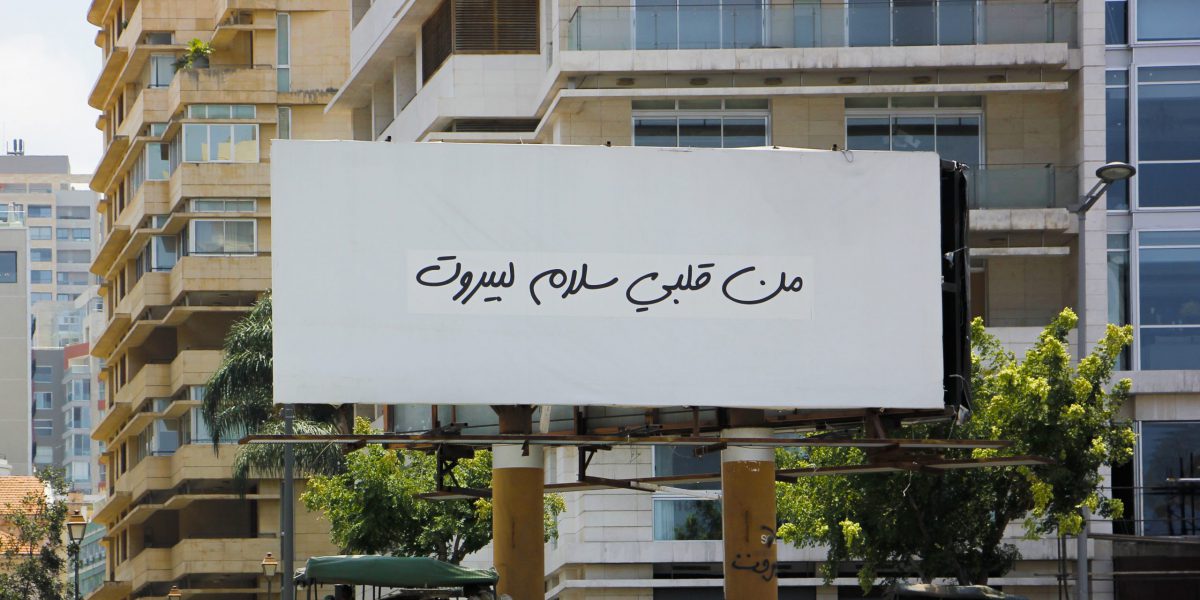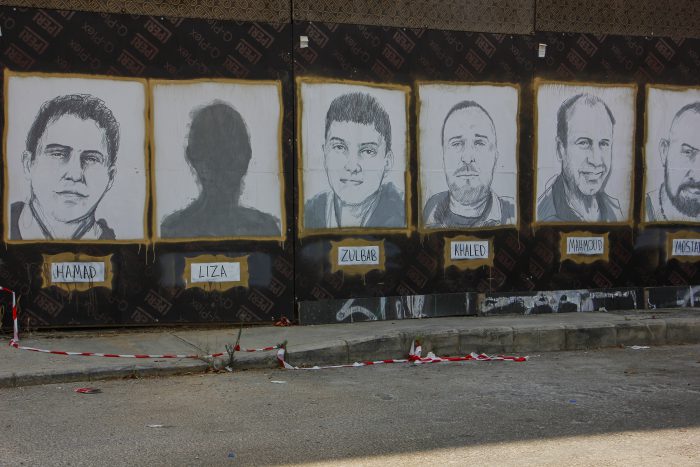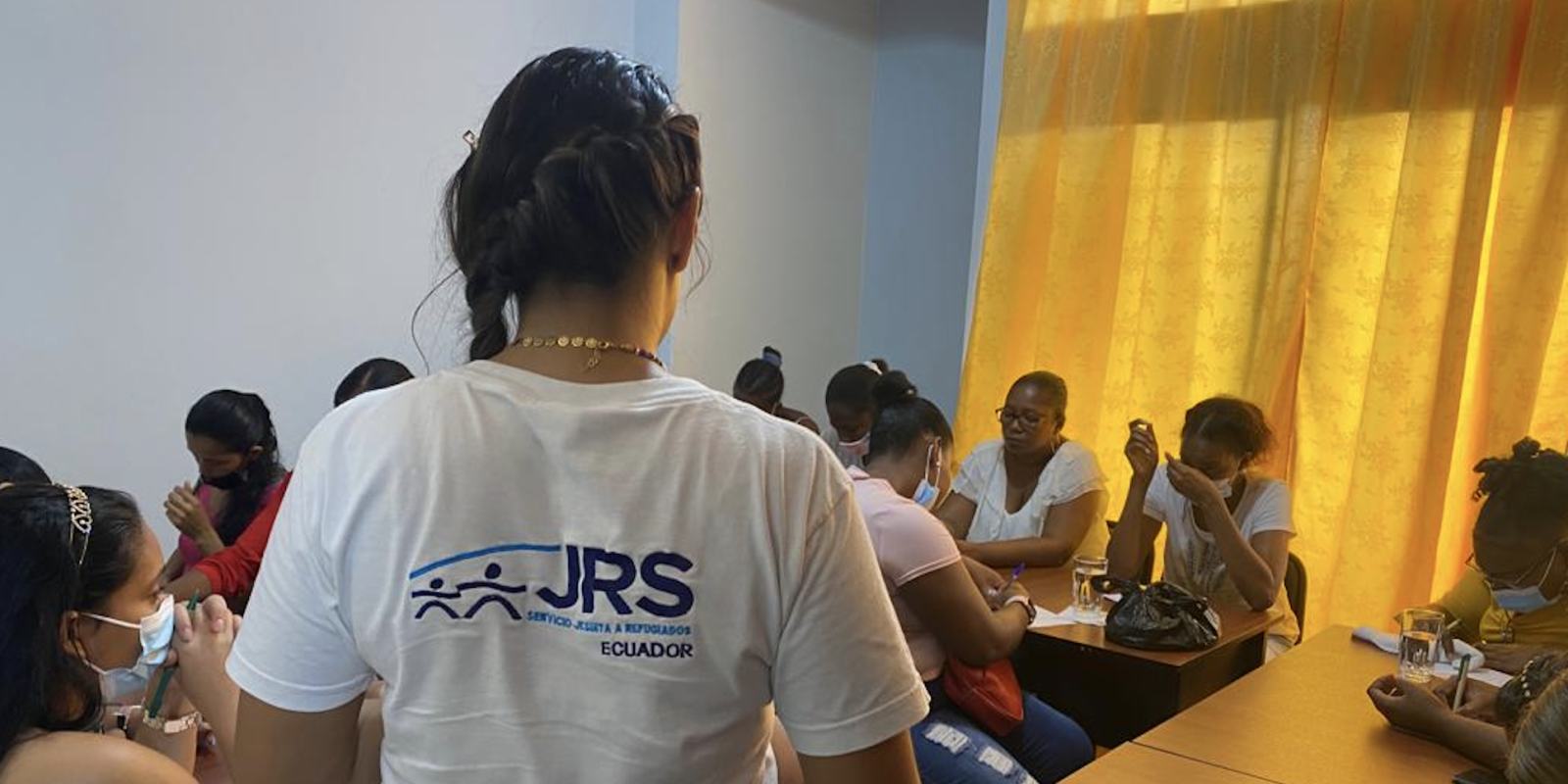Beirut Blast Memorial: JRS continues to support those affected
04 August 2021

One year after the deadly Beirut blast, the families of the victims are still struggling with the grief of losing their loved ones. Throughout this painful year, these families experienced a spectrum of emotions spanning shock, anger, guilt, sorrow, and disbelief.
Grief can affect both body and mind and providing care for mental health has been a priority during these difficult days in Lebanon. Since the first day of the blast, JRS Mental Health and Psychosocial Support Programs (MHPSS) were available over the phone, in person, through group and individual sessions to give hope to those people and help them heal.
A day before the explosion, Amal* (a participant at Frans van der Lugt Centre (FVDL) in Bourj Hammoud) and her husband were enjoying the Eid-al-Adha holiday outside Beirut. They spent the day by the river, enjoying the pleasant breeze, the green trees, and the refreshing water. Her husband said that this was what heaven was like, but Amal told him heaven would be a more peaceful and beautiful place.
The next day, Amal was sitting in her house in Al Nabaa (six kilometres away from the Beirut port) preparing Mloukheye a stew made from a green leafy plant that her husband loved, for lunch. She was waiting for him to come back from work so they could eat and chat together. Suddenly, she heard a huge frightening explosion that then rocked the building. Black smoke covered the streets, children cried, glass fell everywhere, and people ran through the streets, trying to hide anywhere they could.
Worried about her husband, Amal tried to call him but could not connect. Then, she contacted a relative who went searching for him in hospitals. Sadly, it was another failed attempt. The next day, however, they found him dead in Al Hariri Governmental Hospital. He was one of more than 200 people who perished during the blast, with thousands of others injured. Amal received the news of his death with shock and pain, and she wished their day by the river would have lasted longer together.
As soon as the JRS team learnt about the death of her husband, they called her and tried to support her. The MHPSS project director and the social worker coordinated to help Amal process the loss of her husband. Bearing in mind that Amal had no children or relatives in Lebanon, they created a support system consisting of the women at the social center.
Following a rotation schedule, the women visited her daily and offered their condolences. They also received awareness sessions on how to deal with Amal’s situation and try to be available with her as much as possible. Eman, the social worker, also trained Amal on psychological first aid skills (PFA) that she could use whenever she felt she needed them.
Knowing that isolating herself would create more problems, she seized any opportunity she could find to be social. Having acquired social skills from the JRS social center course, she signed up for a face mask sewing course at one of the organizations. “I was assigned as the supervisor because I have a good experience in sewing. So, I was teaching the participants how to work on the sewing machines and how to make face masks. I also managed to earn a small income from this course. I will hopefully continue round two next month,” explains Amal. Amal also applied to be part of a dairy production course, and she hopes to be selected by the funded project so she could work and earn money.” I want to go out and change my mood, and maybe this course might give me the chance to work abroad one day,” added Amal.
Amal is considering leaving the country. She wants to be surrounded by her family, who live in Turkey, so that she can express herself and share life with them. However, she is unable to afford all of the traveling expenses. Likewise, she cannot return to live with her parents in Syria because of the security situation and the difficulty of the journey from Lebanon to Syria.

There’s no doubt that processing the loss of her husband has taken, and will continue to take, time. Yet, Amal is a spiritual woman and is determined to not let her loss define her. “Through praying, fasting, supplications, and Quran, I managed to be patient. I can still imagine my husband and hear his voice in the house, but life goes on,” remarks Amal.
The waves of solidarity and the mental health support were extremely helpful. JRS continues supporting Amal through the social worker, and the psychologist who provides her with individual sessions to continue her healing journey as she learns how to adapt without her beloved husband.
Amal* is a fictitious name used to maintain confidentiality.



